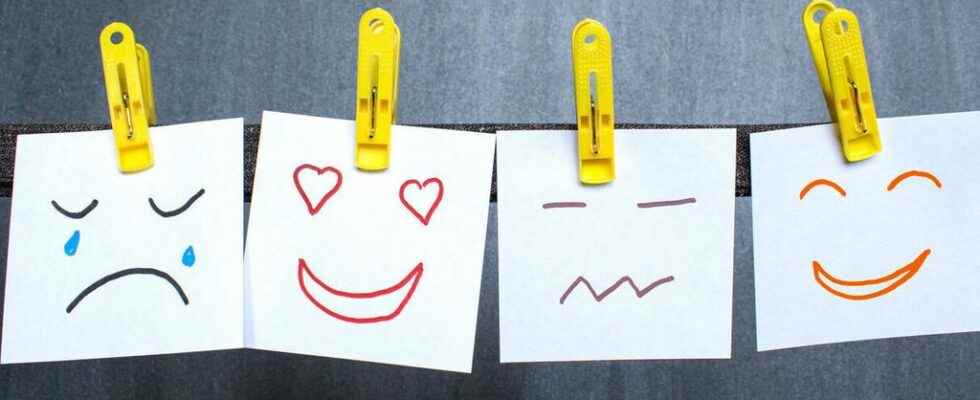How can you become responsible for your choices, your feelings and your emotions? A short guide to living better on a daily basis with yourself and others.
To be crossed by emotions… it happens to us several times a day. To feel sadness, to express joy, to experience anger. Nothing more normal”. Except that… at the school of life, we were never taught to live our emotions, to understand them, to fully express them… Result? We are not emotionally self-sufficient. For Ariane Calvo, psychologist, this concept of lack of autonomy encompasses several facets:
- Going through life in “survival” mode: “The world is a danger, you prepare for the worst scenario. You sometimes attack before being attacked for fear of being surprised. You control your whole little world and need to be kept informed of their actions to to be “at peace”. You are never serene, never calm. You are constantly anticipating, to prepare yourself for the possible trials of life.”
- Succumbing to more or less subtle forms of self-manipulation: “Your worst unconscious fear is to be abandoned, so you make sure that your partner, your children, your parents, your friends can never leave you.” Always useful, at their service, you completely forget yourself.
- Take responsibility for all the emotions that go through us, especially those that overwhelm us: “It’s always because of someone else’s behavior, or because of childhood hurts, or because you can’t do it differently…” In short, it’s not “your fault”.
Stop being dependent on others
Without work on us, this lack of autonomy leads to dependence on the other, the one who can save us. Thereby, we entrust our happiness and our serenity outside. “We wish more than anything that someone else would calm our fears, show us that we deserve to be loved, value us, give us confidence… when only we ourselves can really give us all these Asking an outside person, even a very close one, is necessarily futile”.
A programmed failure, because “only the fact of having tested our resources, carefully observed our qualities, healed our wounds and developed our confidence allows us to become independent gradually ” says Ariane Calvo.
Heal your fears and traumas
To become emotionally autonomous, and no longer depend on others, it is imperative to first treat your traumas and fears (of being abandoned, of being betrayed, of not being up to it, of not being kind.. ). These wounds inherited from childhood recur throughout our lives. “Childhood scenarios come back on a loop with different protagonists, different settings. But, deep down, our fundamental issues are often the same. have not taken responsibility for them, that we have not understood them, and dealt with them, they will reappear, making us think that we are “self-sabotaging” On the contrary, our body-mind system, by always giving us the same problems, seeks to give us a chance to solve them once and for all.”
Let it go…
Thereby,”instead of being conditioned, imprisoned by old patterns and waiting for an outside solution to solve our problems, we learn to be more aware of who we are, to understand the messages of our emotions, to take into account what crosses us, to use it to grow and evolve” explains the expert.
The secret to bringing us what we need by ourselves and for ourselves? Identify our needs and understand what would allow us to realize ourselves fully in order to touch happiness. And that’s where emotions come in, when they come knocking on our door, they have things to tell us about ourselves to set us free.
Our Experts:
- Ariane Calvo, psychologist, in Paris, author of Emotional Autonomy (ed. Robert Laffont)
- Franck Andersen, psychotherapist, in Boulogne-Billancourt (92), author of Emotional Resolution (ed. Leduc)
